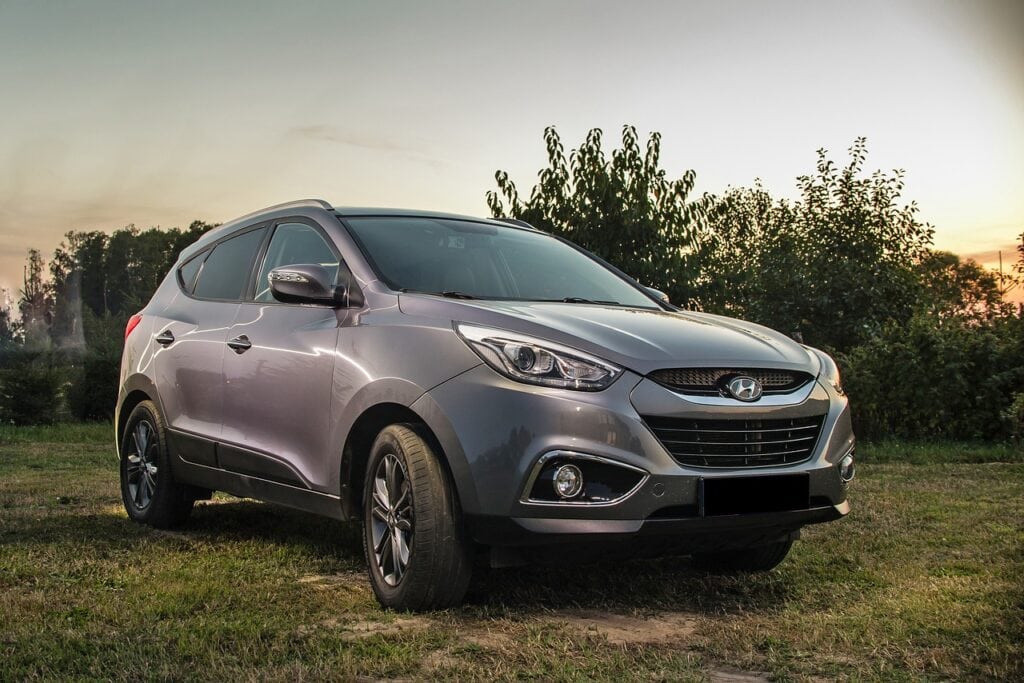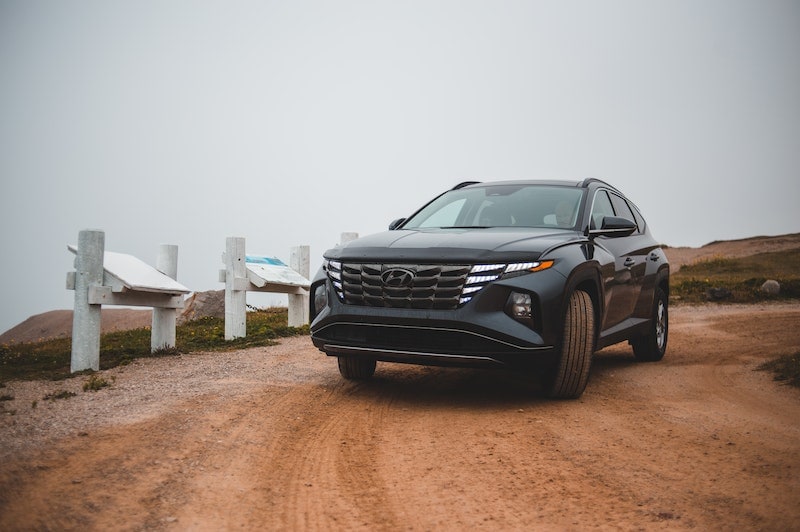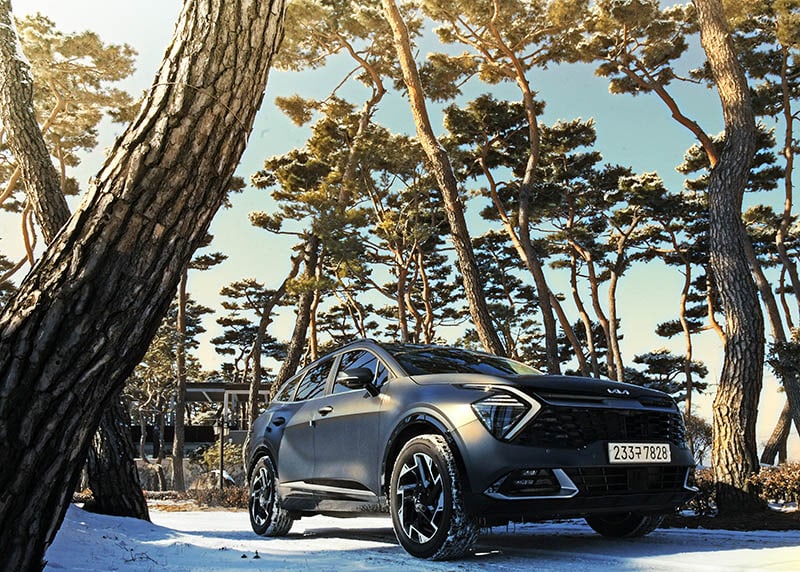Does a Hyundai Hold Its Value? (With Depreciation Chart)
-
Jeff Weishaupt
- Last updated:

If you are considering buying a Hyundai, it is crucial to consider certain important factors, such as its depreciation. This will help you determine the car’s long-term value and ownership costs. Then, when it’s time to resell, you may only get back half of what you initially paid.
Unfortunately, most Hyundai models have a relatively high depreciation, decreasing their value by 5%–6% yearly. Additionally, their resale value is not too impressive either.
This makes it a much better option to buy a used Hyundai instead since the previous owner pays for most of the depreciation. If you’re unsure whether you should buy a new or used Hyundai, here’s everything you should know about its depreciation and resale value.
Hyundai Depreciation Chart
Assuming the prices of popular Hyundai models Accent and Elantra, here’s a complete depreciation chart over 5 years.
| Years of age (Hyundai Accent) | Depreciation (%) | Resale value ($) |
| 1 | 8.46% | $20,705 |
| 2 | 16.72% | $18,836 |
| 3 | 19% | $18,321 |
| 4 | 21% | $17,868 |
| 5 | 23% | $17,416 |
Source: CarEdge
| Years of age (Hyundai Elantra) | Depreciation (%) | Resale value ($) |
| 1 | 9.77% | $22,903 |
| 2 | 16.03% | $21,314 |
| 3 | 18% | $20,814 |
| 4 | 20% | $20,306 |
| 5 | 22% | $19,799 |
Source: CarEdge

Should I Buy a New or Used Hyundai Car?
Since Hyundai has a high depreciation rate, buying a used car is a much better car than a new one. Not only will it be much more affordable, but the previous owner will have paid for most of the depreciation.
Most of the depreciation in Hyundai cars occurs in their early years, especially the very first year of use. For example, the Hyundai Accent loses nearly 17% of its value in the first 2 years. That percentage slows down to 1%–2% per year after 5 years.
If you buy a Hyundai car used for 5 years, the drastic depreciation period will be behind you. Additionally, used cars don’t require much insurance coverage, so you can also benefit from lower insurance costs.
Of course, buying a new Hyundai car has its own advantages. For example, new models come with free roadside assistance, the latest features, better reliability, and more warranty coverage. You may also benefit from specific financing deals with low interest. However, new cars depreciate faster, require pricier insurance, and have a high initial cost. On the other hand, used cars have dedicated extended warranties, cost less, and are cheaper to insure.
It’s still worth noting they may have fewer consumer protections and higher mileage than you’d prefer. However, Hyundai also offers a 10-year, 100,000-mile warranty for new cars, which may convince you to buy a new one regardless of the low resale value.
What Are the Best Hyundai Model Years to Buy?
The 2019 and 2020 models are undoubtedly the best years for most Hyundai cars. However, the best years can vary depending on the model. For example, 1998, 2004–2006, 2015, 2016, and 2019 onwards are the best years for the Hyundai Elantra.
Customers appreciated the 2019–2022 models for their sophisticated safety features, bold modern styling, and impressive fuel economy. The 2022 Hyundai Elantra is the fastest of these models.
The 2004–2006 Elantra models impressed users with fuel economy, performance, and transmissions. Meanwhile, the 2015 and 2016 models offered a compact build and exceptional engine performance.
Finally, the 1998 Elantra is loved due to its reliability and efficiency. However, 2001, 2002, 2010-2013, and 2017 were the worst years for this model due to its engine ticking, paint peeling, engine failure, overheating, and excessive rust.
For the Hyundai Santa Fe, 2006, 2010, 2011, 2015, 2016, and 2018 onwards were the most fruitful. The 2018–2022 models offered a robust engine and advanced safety features. Meanwhile, 2015 and 2016 excelled in engine power and fuel economy.
On the other hand, Santa Fe models in 2003, 2004, 2007–2009, 2013, 2014, and 2017 were disappointing. Customers reported problems such as loss of power during acceleration, engine failure, fuel level sensor failure, and paint peeling.

How Does the Hyundai Depreciation Value Compare to Similar Cars?
Compared to similar cars, Hyundai has a surprisingly low depreciation rate. The Nissan Frontier has the highest depreciation after 5 years or 75,000 miles, costing the owner $15,034.
Contrastingly, Toyota C-HR has the lowest depreciation out of all similar costs, reducing $6,138 in value. If you consider cars that aren’t similar to the Hyundai Venue, the Mercedes-Benz G-Class has the lowest depreciation rate of only 0.6% per year.
On the other hand, the Nissan LEAF has the highest depreciation rate of a whopping 65.1% per year. Here are the depreciations of Hyundai Venue and similar models after 5 years or 75,000 miles.
| Make and model | Depreciation at 5 years (75,000 miles) |
| Hyundai Venue | $7,786 |
| Fiat 500x | $8,401 |
| Ford EcoSport | $9,303 |
| Ford Escape | $10,785 |
| Nissan Frontier | $15,034 |
| Toyota C-HR | $6,138 |
How Much Does It Cost to Insure Hyundai Vehicles?
If you buy a new Hyundai model, prepare to pay high insurance costs. Of course, the exact number varies depending on the model, but the average insurance cost for a Hyundai car is $1,993 per year.
For example, it costs $606 per year to insure a brand-new Hyundai Tucson SE, while the Venue model can cost as high as $2,323. Here’s a complete comparison of monthly and insurance costs for Hyundai cars based on the model.
| Model | Monthly Insurance | Yearly Insurance |
| Tucson | $143 | $1,717 |
| Kona | $147 | $1,766 |
| Santa Fe | $152 | $1,827 |
| Accent | $156 | $1,872 |
| Elantra | $156 | $1,987 |
| Veloster | $167 | $2,007 |
| Sonata | $173 | $2,071 |
| Palisade | $175 | $2,097 |
| Ioniq | $188 | $2,259 |
| Venue | $194 | $2,323 |
Source: Value Penguin
The insurer can also influence this rate, as Farm Bureau insurers charge $1,295 per year for Hyundai cars. Contrastingly, insurance quotes from Nationwide for Hyundais can cost as high as $2,856.
Here’s a complete comparison of yearly insurance costs for Hyundai cars depending on the insurer.
| Insurer | Cost of Hyundai Insurance |
| Farm Bureau | $1,295 |
| State Farm | $1,331 |
| USAA | $1,713 |
| Geico | $1,853 |
| Allstate | $2,072 |
| Progressive | $2,853 |
| Nationwide | $2,856 |
Source: Value Penguin

Tips for Maintaining the Value of Hyundai Vehicles
The condition of your car at the time of reselling greatly influences its resale value. Luckily, this factor is in your control, aside from manufacturing defects which Hyundai may cover in the warranty.
- Hyundai provides an extensive maintenance schedule, which can help you retain your car’s resale value. Follow this schedule regularly to maintain your Hyundai’s value.
- You must also guarantee that your buyer doesn’t have to pay for repairs, which can lower your resale value. Every $5,000 in repairs leads to a $2,500 drop in the resale value.
- Follow Hyundai’s wear and tear guide to estimate the damage before you sell your car independently or as a trade-in.
- Get your Hyundai car detailed before reselling. Cleaning every nook and cranny can make your car appear brand-new to increase its resale value.
- Don’t forget routine maintenance to keep every car part in excellent condition. That includes getting the tires rotated, alignment balanced, oil changed, and fluids maintained. These steps are especially crucial right before reselling.
- Finally, keeping track of all original parts included with the car is also essential. That includes all manuals, keys, and accessories, the loss of which can lead to a lower resale value. Transferring these parts to the next owner will help maintain your car’s value.
Conclusion
Hyundai cars rank low regarding the resale value and high in terms of depreciation. On average, they only retain 71% of their original value after 5 years of use. However, specific measures such as regular maintenance and repairs can help you maintain your car’s value.
If you’re in the market for a Hyundai car, it’s better to buy a used model instead of a new one. You will have to pay less insurance and initial price, and you can also benefit from a slower depreciation rate.
Considering the average Hyundai depreciation rate, buying a Hyundai car that’s been used for three years is best.
Featured Image Credit: rkarkowski, Pixabay
Contents
